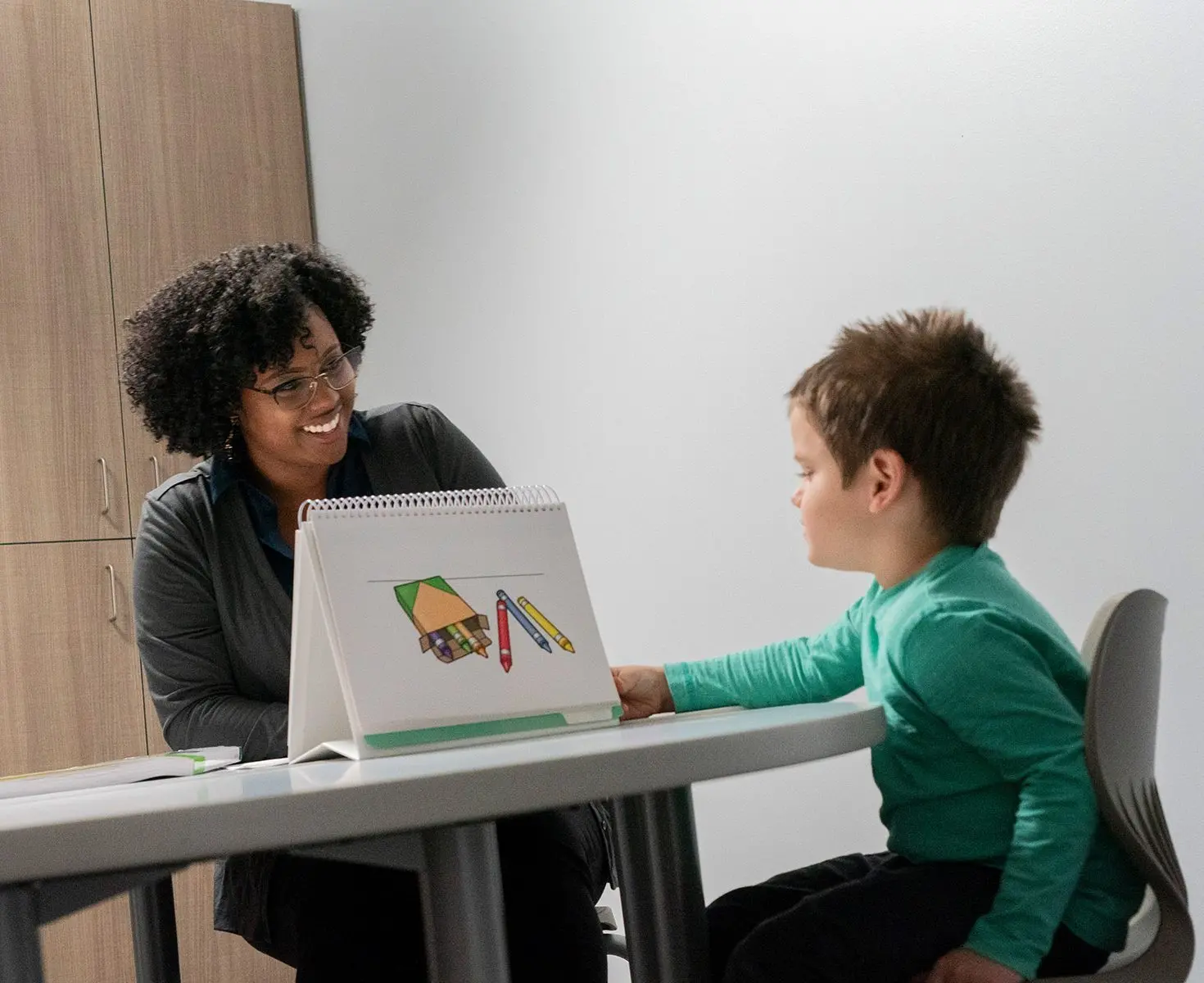Signs That Suggest You May Need a Speech Pathologist for Therapy
Signs That Suggest You May Need a Speech Pathologist for Therapy
Blog Article
Just How a Speech Pathologist Can Aid Improve Interaction Skills
Efficient interaction is a cornerstone of individual and specialist success, yet numerous individuals deal with challenges that prevent their ability to share themselves clearly. A speech pathologist is geared up to deal with these barriers with targeted analysis and treatment methods tailored per individual's demands. By utilizing evidence-based healing methods, they not just work to improve speech and language problems but also improve overall communicative skills. Comprehending the complex duty of a speech pathologist reveals exactly how their expertise can transform lives, welcoming a closer exam of the details approaches and end results connected with their practice.
Recognizing Communication Conditions
Comprehending communication conditions is crucial for identifying exactly how they influence people' capacity to express themselves and involve with others. Interaction problems incorporate a vast array of troubles that affect speech, language, and social interaction, usually hindering reliable communication. These conditions can occur from different variables, consisting of neurological problems, developmental delays, physical disabilities, or emotional concerns.
Speech conditions might materialize as problems in voice, expression, or fluency production, influencing how words are obvious or spoken. Language disorders, on the other hand, include difficulties in understanding or making use of language, which can restrain both non-verbal and spoken interaction. Social interaction conditions are characterized by difficulties in the pragmatic aspects of interaction, such as taking turns in discussion or understanding social signs.
The repercussions of interaction disorders are profound, impacting not just the person's ability to convey ideas and emotions but additionally their social partnerships, educational chances, and general quality of life. Understanding of these conditions can promote compassion and support, urging effective approaches for communication and engagement. Recognizing the intricacies of interaction conditions is a crucial action in the direction of advertising inclusivity and addressing the demands of those affected.
Role of a Speech Pathologist
Speech pathologists often play an important duty in detecting and dealing with communication disorders, employing a series of evidence-based strategies tailored per person's demands. These experts deal with people across the lifespan, from kids with speech hold-ups to adults recuperating from strokes or distressing brain injuries. Their knowledge incorporates a variety of communication concerns, consisting of expression, fluency, language, and voice conditions.
In restorative setups, speech pathologists utilize organized interventions made to improve interaction abilities. They may implement strategies such as speech workouts, language video games, and social interaction training to help with renovations in meaningful and receptive language capabilities. Speech Pathologist. In addition, they educate customers and their family members regarding effective communication methods and flexible methods to navigate daily interactions
Beyond straight treatment, speech pathologists collaborate with various other health care professionals, instructors, and caretakers to make certain an extensive approach to treatment. They promote for customers by offering resources and assistance, enabling people to attain their communication objectives and boost their overall lifestyle. As experts in the area, speech pathologists are essential in fostering efficient interaction, promoting freedom, and boosting social participation for those with communication difficulties.
Evaluation and Medical Diagnosis Process
The assessment and diagnosis process conducted by speech pathologists usually entails a detailed analysis to identify interaction conditions accurately. This process begins with a thorough medical history, where the medical professional gathers essential information concerning the individual's clinical, instructional, and developing history. Recognizing the context of the person's interaction troubles is vital for an accurate medical diagnosis.
Following the instance history, speech pathologists utilize standard tests and informal assessments to evaluate numerous aspects of interaction, consisting of speech sound production, language understanding, expressive language, and social interaction abilities. These evaluations are customized to the individual's age and details problems, giving beneficial information for analysis.
Monitoring is additionally a crucial part of the evaluation procedure, as it permits the medical professional to see firsthand how the specific interacts in natural setups. In addition, meetings with member of the family and educators can supply insight into the person's interaction obstacles throughout different settings.
When the assessment is complete, the speech pathologist synthesizes the searchings for to identify a medical diagnosis and suggest ideal treatments. This detailed assessment procedure guarantees that people obtain targeted assistance customized to their one-of-a-kind communication demands, laying the foundation for effective restorative methods.
Restorative Methods and Approaches
Countless therapeutic methods and techniques are used by speech pathologists to resolve a range of communication disorders effectively. One widely made use of approach is expression treatment, which concentrates on correcting speech sounds through repetition and visual signs. This strategy is especially helpful for individuals with speech sound problems.
An additional efficient approach is language treatment, which enhances both expressive and receptive language abilities. This might involve interactive tasks that promote vocabulary development, syntax understanding, and conversational abilities. Furthermore, speech pathologists commonly utilize social abilities training to improve pragmatic language capabilities, enabling individuals to browse social communications a lot more efficiently.
Fluency shaping and stuttering modification strategies are especially designed to help those experiencing fluency disorders. These approaches help clients develop smoother speech patterns and manage the physical and emotional components of stuttering.
Moreover, augmentative and alternative interaction (AAC) systems are used for resource people with serious communication problems. These systems, which can consist of gestures, symbols, or digital devices, offer important support for reliable communication.
Benefits of Speech Treatment

Furthermore, speech therapy can assist in developing crucial listening and comprehension abilities, cultivating better interaction in discussions. People with cognitive-communication problems can additionally profit, as treatment concentrates on enhancing memory and analytical abilities, vital for efficient communication.
An additional crucial aspect is the emotional assistance supplied during therapy sessions. Speech pathologists produce a secure atmosphere, motivating individuals to conquer anxiousness and irritation pertaining to their communication problems. This assistance can result in boosted self-esteem and general psychological well-being.
In addition, early intervention via speech treatment can prevent more difficulties, making sure that people reach their complete communicative potential. Generally, the benefits of speech therapy prolong past mere speech improvement, positively affecting various dimensions of life for those affected by communication difficulties.
Conclusion
In recap, speech pathologists play a crucial duty in addressing interaction conditions through assessment, diagnosis, and tailored therapeutic treatments. By employing evidence-based methods, these specialists boost individuals' speech and language capabilities, cultivating improved clarity, fluency, and social communication Visit This Link skills. The benefits of very early treatment underscore the importance of seeking help from speech pathologists, as their expertise can significantly improve communicative possibility, ultimately leading to greater success in both professional and personal balls.

Speech pathologists regularly play a crucial role in treating and identifying interaction conditions, using a variety of evidence-based strategies customized to each person's requirements. As specialists in the area, speech pathologists are important in cultivating effective communication, advertising independence, and enhancing social participation for those with communication difficulties.

Report this page